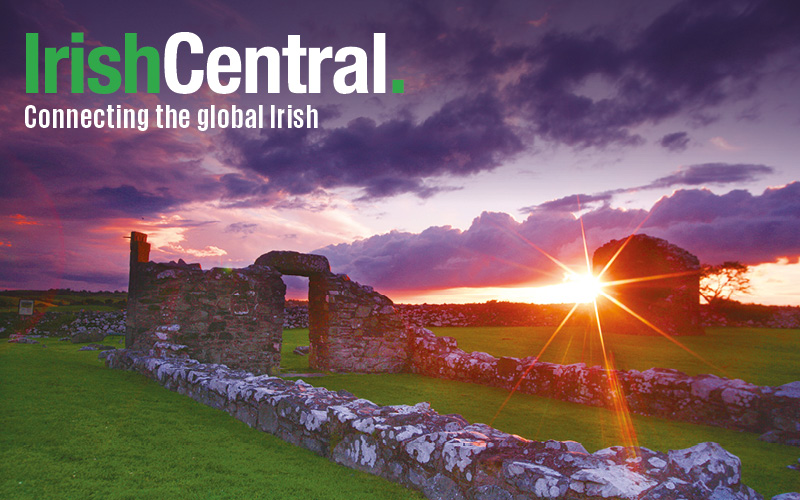President Higgins highlights the need for “Solidarity, Care, Compassion and Kindness” in our collective response to the pandemic in a new address.
President of Ireland Michael D. Higgins has issued a special message for Irish both at home and abroad urging them to come together with a "fresh determination" in the battle against coronavirus.
Read More: President of Ireland expresses heartbreak over violent protests in US
“Reflecting on Covid19 - Solidarity, Care, Compassion and Kindness” - Message from President Michael D. Higgins:
A Chairde,
As we approach the end of six months of our shared struggle with the virus COVID-19, it is appropriate, perhaps, to make a reflection. Such a reflection should help us in our determination to continue our efforts of prevention, to take care, prevail with our health protected and the essentials of our social and economic interactions recovered with the minimum of risk.
Beidh a leithead cabhrach leis an lá a thabhairt linn i gcoinne an víris, ceapaim.
I believe that we must now, with our schools re-opened, muster a fresh determination to give our efforts, as the late John B. Keane might put it, ‘our almighty best.’
I suggest we do so on the basis of Good Citizenship. Yes, one’s personal health is more secure when there is a good following of the public health advice, but making the effort is an achievement that goes beyond the self in the protection of others. Following the guidelines and the advice is, fundamentally, an act of Good Citizenship.
I believe that the principles that might serve as guide in our renewed commitment can be based on some fundamental values that represent the best of ourselves, such as Solidarity, Care, Compassion, and Kindness.
We must, it goes without saying, continue to share the grief of those who have lost loved ones. We must share, too, the distress of those whose lives and livelihoods have been changed, and address the loneliness being experienced by those who have been cut off from contact with those who previously sustained them. We must acknowledge and address the loss of the social, economic, and recreational practices that were their links to life.
As a sociologist, I am frankly disappointed at the scant references that have been in the discourse to what is known, from research in social studies, on inter-relationships of both the young and the not so young, the aging, the aged, and the many who do not fit neatly into these categories.
It is that valuable knowledge, for example, in social gerontology that can enable fine lines, as well as broad brushstrokes, to be drawn in terms of policy, understanding, and language.
Read More: President of Ireland marks International Nurses Day with message of gratitude
I have mentioned Solidarity as an essential value guiding us as we proceed. We must acknowledge that breaches of solidarity damage, and have damaged, social cohesion in combatting COVID, but our righteous concerns must not be allowed to dislodge us from our common purpose – that of, by following the advice in relation to public health which we are determined to do out of good citizenship, we will, together, suppress the virus.
Invoking Solidarity requires of us, of course, an understanding of the different kinds of vulnerability that there are, the differences, too, in capacities and circumstances. Understanding this is what enables the fine lines that might accompany the broad brushstrokes of the measures we are taking, to be drawn – drawn with sensitivity, as well as with risk taken into account.
I mention Care. The transition to a post-Covid economy must be to an economy and society that has Care as a central purpose.
'Care’ means we need to accept that, in their implementation, all of the necessary proposals will fall on those of differing capacities and resources.
‘Compassion’, I suggest, must be discernible in language as well as actions. The significance of small, low risk, gestures and processes that are part of the interactions of living for those in different categories needs to be recognised and respected, for example, intimacies in the process of grieving or healing. Our citizens must be empowered and encouraged to see themselves strengthened by placing themselves in the space of the vulnerability of each other.
‘Kindness’ is precious. What we communicate with each other, and how, must not be in any form of cold language that invokes fear, but rather one that conveys a warmth, one that reflects a shared concern for us all living and working together as citizens, seeking to exercise our responsibilities stretched to the best of our capacity from an ethic of Good Citizenship.
Being effective together on this project of defeating COVID-19, as it impinges on our lives, requires positive commitments from us all and we need to speak and encourage each other to have a vision of the light that will surely come from all of our efforts when renewed and redoubled.
While the rehearsal of Doomsday might have been useful perhaps, on occasion, in other circumstances, it is insufficient and mostly unhelpful in our present circumstances. Rather, we must encourage each other and draw strength from that.
Agus, nách bhfuil sé fíor gurb í an gníomh is mó is féidir linn a dhéanamh, chun ár mbuíochas a chur in iúl le daíríreacas, do na hoibrithe go léir, atá ag dul i mbaol ar ár son gach lá agus oíche sna seirbhísí riachtanacha, ná ár n-iarrachtaí a mhéadú agus a threisiú chun an virus a sheachaint.
Let us all agree that the greatest act of appreciation we can show towards all those workers taking risks on our behalf in essential services, day and night, is to re-double our efforts to avoid infection.
Let’s do that together. Déanaimis é.
Míle buíochas, Thank you all.
Is beir beannacht.
You can watch President Michael D. Higgins' address here:




Comments